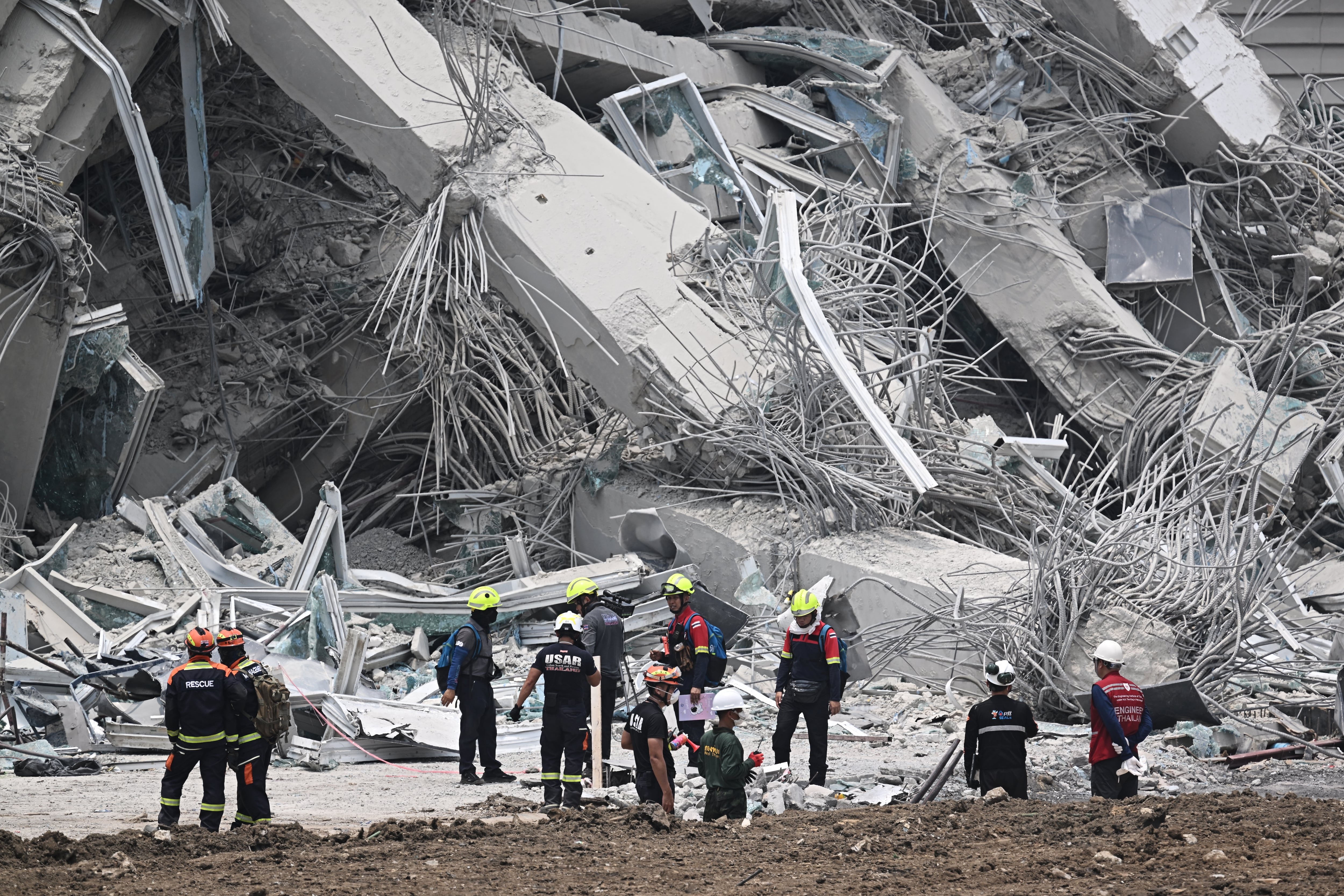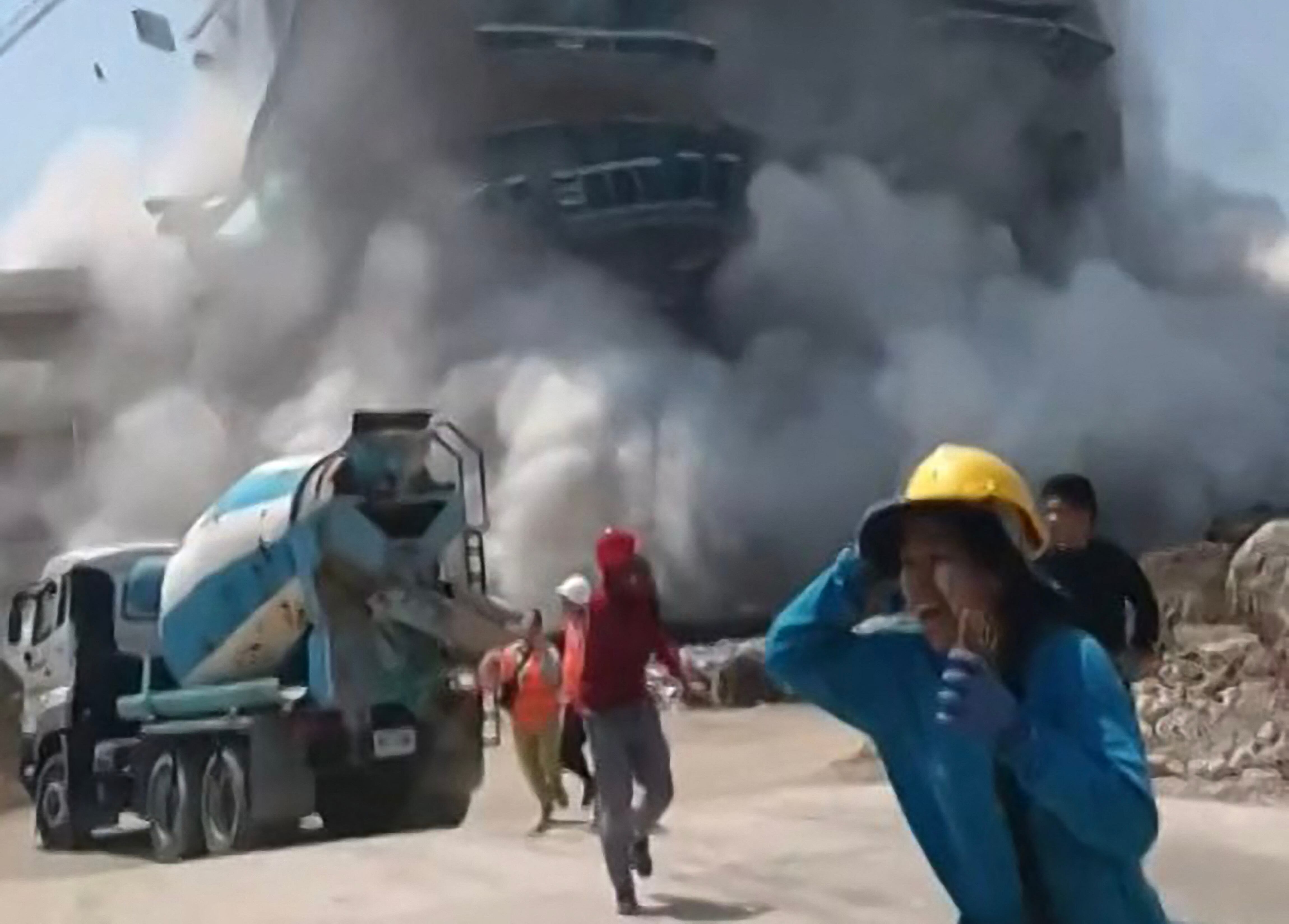BANGKOK – Chinese investments in Thailand are facing intense scrutiny as the host country made the first arrest of a Chinese enterprise official allegedly accountable for the collapse of a building that killed over 100 workers after an earthquake in late March.
The 30-story government audit building was the only major structure to collapse in Thailand due to the 7.7-magnitude tremor with the epicenter in Myanmar 1,000 kilometers (621 miles) away. It raised questions about its design, construction controls, materials used, and allegations of bribery and official corruption. As many as 47 construction workers remained unaccounted for while 47 were confirmed dead and nine injured so far.
Thai government agencies were scrambling to probe the validity of China Railway Number 10 (Thailand) Co., Ltd., which is part of China state-owned China Railway Engineering Corp. It formed a joint venture with the Thai construction giant, Italian Thai, but was found using as partners Thai laymen who lacked knowledge of building construction.
Authorities are also probing Xin Ke Yuan Steel, a Chinese steel company whose steel bars – used in the collapsed office – were found to be substandard in subsequent tests.
On Sunday, the Department of Special Investigation, or DSI, arrested Chuanling Zhang, an executive at China Railway Number 10 (Thailand) Co., Ltd. He was charged on Monday with violation of business law by using three Thai nominees in the Thai-registered company.
According to Thailand’s Foreign Business Act 1999, foreigners can set up a joint venture with a Thai partner but are not allowed to hold more than a 49% stake. Thai nominees are often used to circumvent the laws.
Zhang, who said he was an official for China’s state enterprise, said he knew the three Thai men from rural regions, but did not know them well, according to a DSI official.
He was freed on 500,000 baht (US$15,066) bail but barred from leaving the country. If convicted, Zhang could face as long as three years in prison and a fine of 2 million baht (US$60,288).
Woranan Srilam of the DSI said his office was looking for the three Thai men whom the media described as laymen who earned small salaries but hold million baht worth of stocks.
“We are looking to see if the Thai executives hold stakes on behalf of other persons,” said Woranan. “Also we are trying to find if there was bid rigging which hampered other competitors.”
Since the collapse, the officials at the State Audit Office only issued public condolences but gave no clear statement. The project blueprint made available to the public showed overpriced and unnecessary items including a 200-seat theater. Insiders said bribery was common in state biddings, though officially unconfirmed.
An engineer filed a complaint that his signature was counterfeited as control engineer. Authorities have yet to file charges against any Thai officials.
Xin Ke Yuan’s defense
Authorities have also focused on a Chinese steel giant Xin Ke Yuan Steel Co., Ltd. – the main supplier of steel bars. The ministry of industry found their steel rods were low quality.
The company’s external lawyers on Monday denied the accusations that the steel products used in the building played a part in the collapse.
“[We] believe that the truth will come out that the main causes of the state audit building collapse were likely other factors such as the design, the engineers or the reduction in specs,” Piyapong Kongmaruan, a lawyer for Xin Ke Yuan told a press briefing on Monday.
“There was a misguided concept that all Chinese companies are likely shady. Xin Ke Yuan is fully legal and meets standards,” he said, adding that the damaged steel in the rubble should not be assumed to represent the company’s overall product quality.
Since China adopted stringent production techniques, and in the face of export tariffs, Chinese factories which use a more polluting induction furnace process moved to Thailand. Xin Ke Yuan was registered with capital of 1.4 billion baht (US$42.2 million) under the privileges offered by the Board of Investment, or BOI.
“You invited them to come in but you tied their hands and proposed a strip off the BOI list,” said Surasak Weerakul, another lawyer representing the Chinese firm. “Chinese investors are very wary of this.”
Some domestic voices still remain critical. An opposition Thai lawmaker, Chutiphong Pipoppinyo, said Thailand should seize the chance to clean up the poor business practices and not worry about shady ones.
“All investors still want to invest in Thailand,” he told reporters.
The DSI’s Woranan said his agency was also focusing on tax fraud. Initial investigations found the company, suspended for pollution since last December, cheated on more than 200 million baht (US$6 million) in Value-Added Tax returns, though it claimed to have paid over 800 million baht (US$42.1 million) in corporate taxes since 2019.
Edited by Mike Firn and Taejun Kang.


